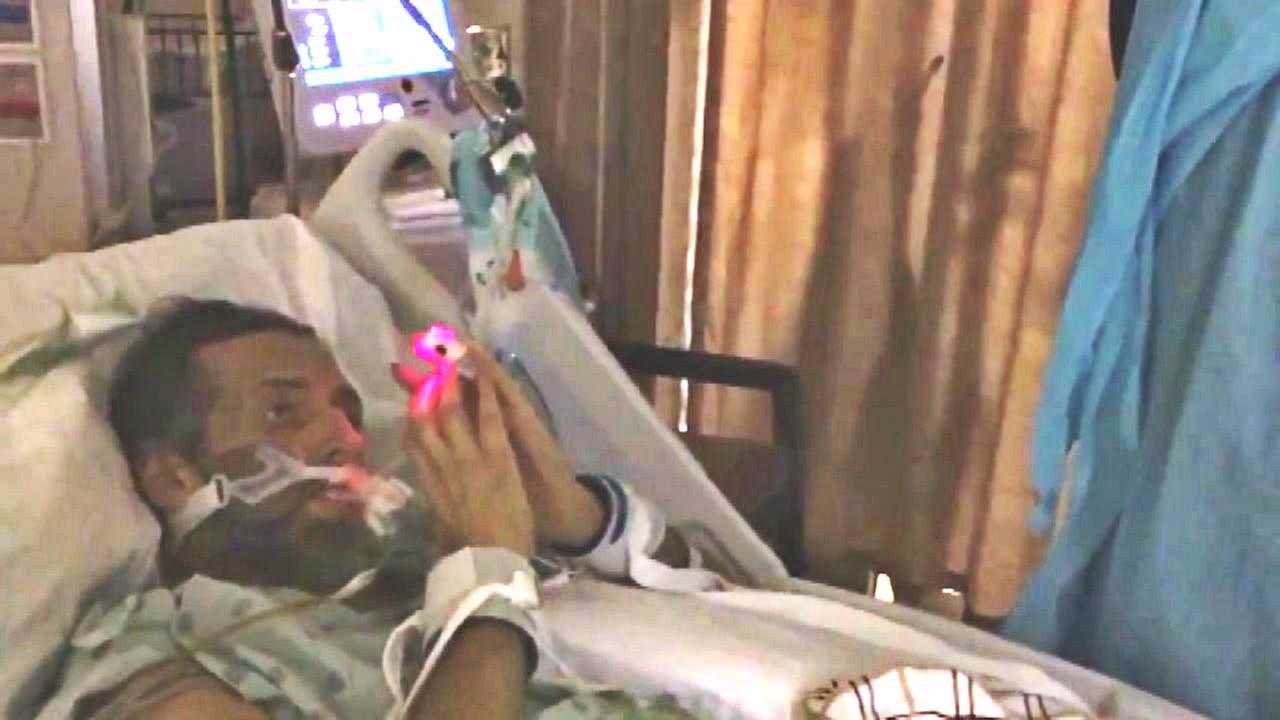 HOUSTON, Texas — A Texas mother says that she intends to continue to fight to have a state law repealed that allows hospitals to stop providing life-sustaining treatment to patients after her son passed away last week just days before doctors planned to pull the plug.
HOUSTON, Texas — A Texas mother says that she intends to continue to fight to have a state law repealed that allows hospitals to stop providing life-sustaining treatment to patients after her son passed away last week just days before doctors planned to pull the plug.
As previously reported, Christopher Dunn, 46, had been in Houston Methodist Hospital for over two months as a mass was found where his small intestine connects to his pancreas. The non-cancerous mass had been adversely affecting not only his small intestine, but also his liver and kidneys. He was placed on a ventilator, and was intermittently sedated, but had been able to communicate with hand gestures or by moving his head.
Last month, J. Richard Cheney, the chair of the bioethics committee at Houston Methodist Hospital, sent a letter to Dunn’s parents to advise that the committee believed that life-sustaining treatment should be discontinued.
“Thank you for meeting with the committee to tell us of your hopes for Chris and your request to continue life-sustaining treatment,” the letter read. “After hearing from you and from Chris’ physicians, the committee has decided that life-sustaining treatment is medically inappropriate for Chris and that all treatments other than those needed to keep him comfortable should be discontinued and withheld.”
The Texas Advance Directives Act (TADA) of 1999 states that “[i]f the patient or the person responsible for the health care decisions of the patient is requesting life-sustaining treatment that the attending physician has decided and the review process has affirmed is inappropriate treatment,” the patient will be kept alive for 10 days, and on the 11th day, doctors are permitted to discontinue treatment, unless the patient is transferred to another doctor or facility.
“The physician and the health care facility are not obligated to provide life-sustaining treatment after the 10th day after the written decision,” the law outlines.
But Dunn’s mother, Evelyn Kelly refused to stand by and let her son die. She hired attorneys to fight the hospital’s decision, and a video released on Dec. 2 showed Dunn responding by holding up his hands as if to say “pray for me.” His attorneys were able to obtain an injunction in the meantime.
Doctors had again advised Dunn’s family this past week that life-sustaining treatment would soon be discontinued, but the man passed away before that happened. His attorneys report that Dunn died at 6:30 a.m. on Wednesday.
Dunn’s mother says that the family will continue to fight to have the Texas Advance Directives Act altered so that it no longer allow doctors to supersede the wishes of the patient and his or her family.
“Chris’s family and I are grateful for all of the prayers, kind notes of encouragement, and support we have received from around the world,” she said in a statement. “We would like to express our deepest gratitude to the nurses who have cared for Chris and for Methodist Hospital for continuing life-sustaining treatment of Chris until his natural death.”
“Chris’s health battle has now ended, but I intend to continue the fight against this horrible law,” Kelly continued. “No family should have to fight for the right to life of their loved one.”
Texas Right to Life also released a statement following Dunn’s death.
“One month after Houston Methodist Hospital determined that Chris’s life was not worth living and that his condition was not even worth diagnosing or treating, Chris succumbed to his illness,” it said. “We commend Chris’s mother, Evelyn, and the other family members who labored tirelessly to protect Chris from death imposed by the hospital and legally sanctioned by the draconian Texas Advance Directives Act. Through Chris’s illness and disability, Evelyn never lost sight of the value of Chris’s life.”
According to reports, Dunn’s parents are divorced, and while his father agreed with the doctors’ decision to discontinue treatment, his mother did not. The hospital states that it had been waiting on the courts to declare who was the legal guardian—the mother or father.
“While we cannot share private health information, Houston Methodist and the Dunn family were awaiting a decision by the court regarding guardianship and who is authorized to make end-of-life medical decisions for Chris,” it explained in a statement on Wednesday.
“We understand how difficult it is when a loved one is gravely ill and medical decisions must be made,” the statement continued. “Our compassionate physicians and staff provided active life-sustaining medical care during Chris’ entire stay in the hospital. Houston Methodist is honored to have served Chris and his family in a spiritual environment of caring.”
Become a Christian News Network Supporter...


